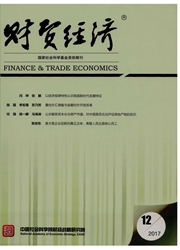

 中文摘要:
中文摘要:
在卖空治理效应存在性的基础上,本文试图以盈余管理作为研究对象,通过中国融资融券的自然实验数据,考察卖空治理效应所需的外部监督条件,以推进卖空机制治理效应的研究。根据盈余管理的动机,文章区分了阈值型和融资型两类盈余管理,并发现由于其背后分别对应着投机型和积极型两类监督者,监督强度的不同可能导致卖空机制产生不同的治理效应。实证结果显示,卖空者对阈值型盈余管理没有显著的治理作用,而对融资型盈余管理则治理作用明显。本文将卖空治理作用的这种异质性归因于外部监督强度的差异,说明卖空者虽然打压了公司股票价格,但与部分监督者很可能不是“对手”,而是“队友”,并与这部分监督者发挥了联合治理作用。
 英文摘要:
英文摘要:
Given the governance effect of short selling mechanism in the literature, we investigate the external monitoring conditions of such a governance effect based on the natural experiment data set of China's short selling system. We categorize the earnings management into threshold-motivated and financing-motivated types. In each type the manager is facing speculative or active monitoring. Our empirical result shows that short selling has no significant effect on threshold-motivated earnings management but has a significant governance effect on financing-motivated earnings management. We attribute the heterogeneous effects on the intensity of external monitoring, and conclude that although short sellers depress the stock prices, they are possibly "friends" of some stakeholders instead of "foes" in the sense that they assemble together to govern the firms efficiently.
 同期刊论文项目
同期刊论文项目
 同项目期刊论文
同项目期刊论文
 期刊信息
期刊信息
